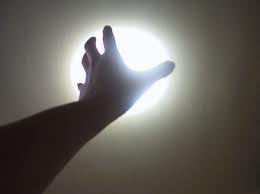Anyway...This assignment has forced me to look at poetry..and given its not really a graded assignment i think the lack of pressure helped! Somehow Poetry doesn't seem as intimidating or foreign as it used to be...of course this could also be because im older more mature and therefore so much wiser..ahem...
The list I've collated are not necessarily my favourite poems so much as poems that might be secondary school-friendly...
The pictures, inspired by HQ's post, are there just for visual pleasure...and well they're supposed to represent either the title or some element of the poem!
So *Drumroll*..................................
Couldn’t resist Shakespeare plus I think its the easiest and most fun of his sonnets
Teaching Elements: Form (Sonnet Structure) Irony, Parody, Satire, Metaphor, Similie and Tone.
#2 E.E. Cummings: I carry your heart in my heart
I love this poem. It’s simplicity is just to heart warming. It can be easily read, easily spoken and most importantly for students, easily understood. Who can’t relate to love?
Teaching Elements: Form (Similar to a Sonnet?), Genre( What kind of Love), Tone
#3 Shel Silverstein: Where the Sidewalk Ends
A utopian poem? Or Maybe an escapist one. Whatever the case, it calls for a rebirth of that childlike sense of wonder in the heart. It urges to visit that place beyond our worries, beyond ourselves perhaps, and grow again into that spirit of innocence, and truly enjoy life!
Teaching Elements: Imagery, tone, metaphor
A didactic poem which talks about manhood and leadership.
Teaching Elements: Paradox, tone, meter, Iambic Pentameter and rhyme
#5 Edgar Allen Poe: Annabel Lee
I love poems that talk about death. Something so alluring about morbidity
Teaching Element: We can talk about the different rhyme scheme. Introduce the form of a ballad.
#6 As I Grew Older: Langston Hughes
The speaker defines the loss of his dreams as a suffocating shadow, a wall that allows no passage. So the poem considers the importance of dreams
Teaching Element: Metaphoric Language
#7 W.B.Yeats: The Young Man's Song (Penny Brown)
Yeats wraps up his story of the brown penny with an untold ending which reflects the complex combination of hesitance and venture about falling in love, just as the two sides of a brown penny existing weirdly and reasonably within one.
Teaching Elements: Mastery of language, metaphors, imagery
#8 Robert Frost: Fire and Ice
The poem deals with the age old burning (pun intended) curiosity as to how the world will eventually end.
Teaching Elements: Rhyme, Iambic Pentameter, Enjambment
#9: Faiz Ahmed Faiz : Be Near Me
A little intense, so often so much is lost in translation; but this poem holds true to its intended form
Teaching Elements: Theme of Love and Heartache, Form of Ghazal
#10: William Carlos Williams : Winter Trees
The poem is about trees having lost their leaves in preparation to winter. The emotions, the melancholy, the peace, the hope... so many clear parallels with human existence. It is simply a glimpse of the wondrous cycle of life.
Teaching Elements: Personification, Mood, Tone, Images, Metaphor



















